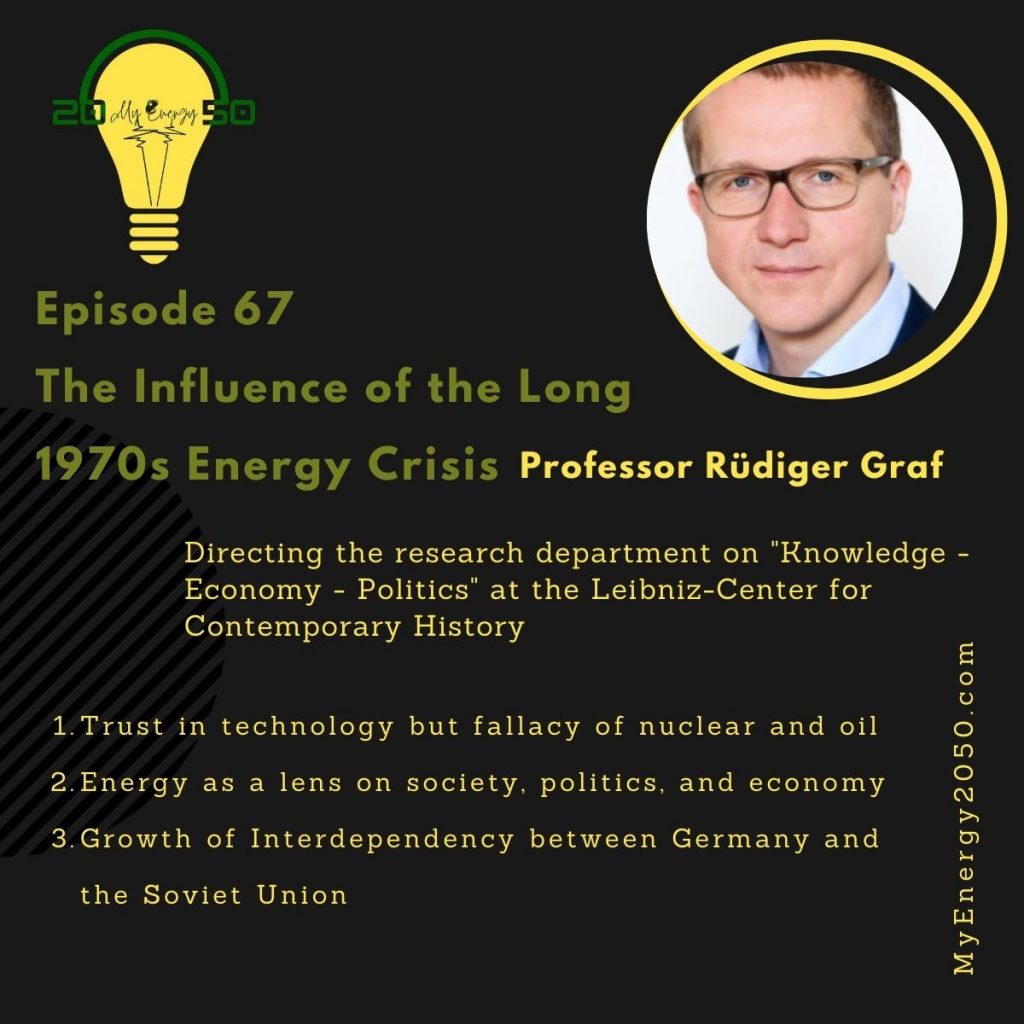This week we speak with Rüdiger Graf, who is directing the research department on “Knowledge -Economy – Politics” at the Leibniz-Center for Contemporary History.
What is the influence of the 1970s on our current energy system? The importance of energy sits within our daily lives. As Rudiger states, any supply shortages or price increases are immediately noticed making energy a key political issue. The failure to secure supplies demonstrates weak leadership. Inversely, effective energy crisis management can display strong leadership skills. I think this can be one of our broad take-aways from looking at lessons learned from the 1970s energy crisis.
Rudiger introducing the term, ‘a long 1970s’, which is a term used by historians for other decades as well. For us it is important because the 1970s energy crisis stretched into the early 1980s with Reagan and Thatcher working to resolve the high price of oil. We are able to learn more about the role of nuclear power and the perspective on peak oil. There’s an ironic trust in nuclear technology but not a trust in developing technologies to extract more oil.
Sometimes I think each new episode of this podcast is the best. But what I think what I mean is that each episodes uncovers a new aspect of the energy system I didn’t know about. And this episode certainly delivers in this aspect. There’s so much history in both Europe and within the global oil market that we don’t consider today. Rudiger is able to explain in a clear manner the historical developments and how and why they happened at the time.
Taking a historical approach and delving into why political or business decisions were made at the time can inform and enhance or present day analysis.
This episode delivers in both scope and depth. Rudiger holds great knowledge and understanding how politicians interacted around the energy sector. He describes the role and perspective of Henry Kissinger and Richard Nixon along with Wiley Brandt enabling us to better grasp the power politics in both domestic and international terms.
Understanding how and why international organizations like OPEC and the International Energy Agency were created also provides context to some of the global fights over oil production and analysis.

A final note, this interview was done for my current role as an Open Society University Network, Senior Fellow at Chatham House, The Royal Institute of International Affairs. The funding was generously provided to produce the podcasts until the end of 2022.
The intent of the My Energy 2050 podcast is to spread the knowledge about how the energy system can assist our transition towards a greener future. The content of each episode is great for teaching, research and identifying how you can assist this energy transition.
Dr. Michael LaBelle is an associate professor at Central European University in the Department of Environmental Sciences. He produces the My Energy 2050 podcast to change how we communicate and improve the energy transition.
